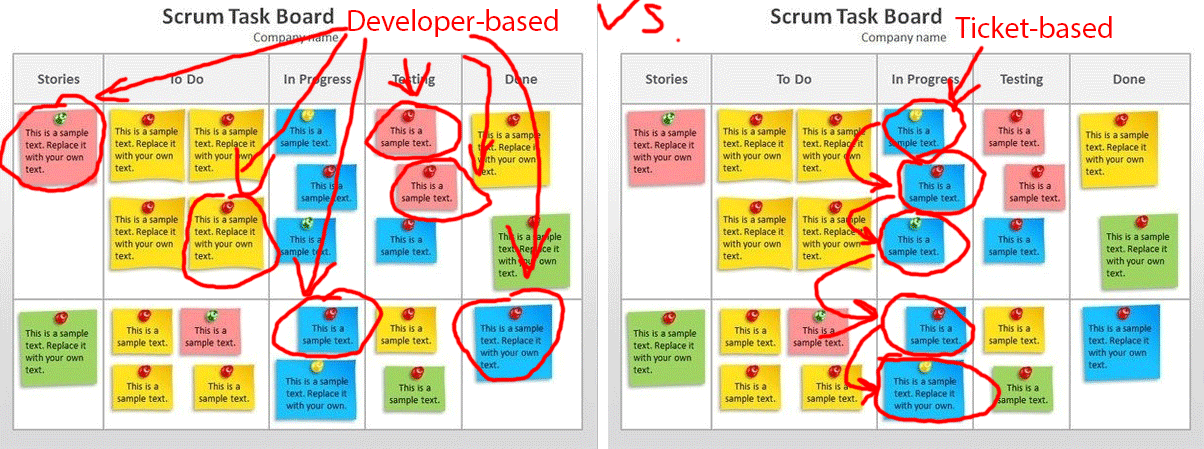We are a small team of around 5 developers.
We're using a ticketmanagement-system that has a virtual Scrumboard.
On the Scrumboard are several columns. The items on the columns are sorted by priority:
New | Consultation | Working | Waiting | Test & Review | Done
Consultation = We need Feedback from someone outside
Waiting = Waiting for someone or something
We have around 40-50 active tickets while doing a 2 week sprint.
In a standard Scrum-daily usually every developer answers 3 questions:
What have I done yesterday?
What will I do today?
What are my impediments?
Somehow our process is different:
We go by column and then by each ticket in the column.
We do this because of several reasons:
- this process developed on its own, we did not plan it, it just happened
- some developers would "space out" when others would talk and not listen. Yes, it's usually just a 15 minute daily, so one can expect that listening for this time should be possible. But since we all work from home, we cant notice if someone is listening or not.
- when a developer is finished with his 3 questions, he might not listen to the others, since his focus is gone
- the developer is visible on the ticket, but searching your own name in order to find the tickets you are working on takes a bit of time. There are ways to switch the view, but constant switching the view gets annoying quite fast for everyone
- if we go by developer, he would sometimes overlook an important ticket while giving his presentation
Going by columns and then tickets feels more "natural", also everyone seems more active at listening, since the next ticket might be his or hers. Also we dont overlook any important detail or ticket. Most of the time the developers indirectly answer the 3-questions this way as well, but not always. This process still feels somewhat superior - at least in our environment!
So should you ALWAYS go by the 3 questions, or should you go by tickets?
Or is there a way to tell when which approach is "better"?
(Maybe this picture might help to understand my questions)
